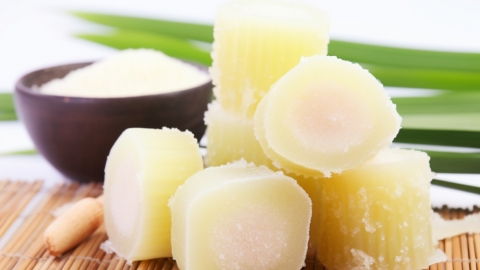What are the benefits and drawbacks of eating sugarcane during the late stages of pregnancy?
Benefits of eating sugarcane during the late stages of pregnancy include energy replenishment, relief from dry mouth, vitamin supplementation, improved digestion, and mood enhancement. However, potential drawbacks include elevated blood sugar levels, increased weight gain, gastrointestinal discomfort, tooth damage, and possible worsening of edema. Consumption should be moderate. If abnormal blood sugar, severe bloating, or other discomfort occurs after consumption, medical attention is recommended.
I. Benefits of Eating Sugarcane in Late Pregnancy
1. Energy Replenishment: Sugarcane contains a high amount of sucrose, which can be quickly converted into glucose to provide energy. This helps alleviate fatigue and weakness caused by fetal growth in late pregnancy, supporting daily activities and preparing for labor.
2. Relief from Dry Mouth: Hormonal changes or accelerated metabolism in late pregnancy often cause dry mouth. Sugarcane has high water content, helping to rapidly rehydrate and relieve oral dryness.
3. Vitamin Supplementation: Sugarcane contains vitamin C and B-complex vitamins, which help boost immunity during late pregnancy, reduce the risk of colds, and provide essential micronutrients for fetal development.
4. Improved Digestion: The dietary fiber in sugarcane promotes intestinal motility, alleviating common constipation issues in late pregnancy, aiding waste elimination, and reducing abdominal bloating.
5. Mood Enhancement: The rich sweetness of sugarcane stimulates the brain to release feel-good hormones, helping to ease anxiety and tension-related negative emotions, thereby improving emotional well-being.

II. Drawbacks of Eating Sugarcane in Late Pregnancy
1. Elevated Blood Sugar: Sugarcane is extremely high in sugar. Excessive consumption during late pregnancy may cause significant blood glucose fluctuations, increasing the risk of gestational diabetes or worsening conditions in pregnant women already diagnosed with diabetes.
2. Increased Weight Gain: Sucrose is calorie-dense. Long-term or excessive intake can lead to rapid weight gain in pregnant women, complicating delivery and potentially causing postpartum weight management difficulties.
3. Gastrointestinal Discomfort: Sugarcane is considered cooling in nature. Overconsumption may irritate the gastrointestinal mucosa, leading to bloating or diarrhea. Pregnant women with sensitive digestive systems or "cold uterus" (a traditional concept) may experience more pronounced symptoms.
4. Tooth Damage: Sugarcane is hard in texture, and chewing it can wear down tooth enamel. Additionally, sugar residue in the mouth promotes bacterial growth, increasing the risk of cavities and gingivitis.
5. Potential Worsening of Edema: Swelling is common in late pregnancy. Due to its high water and sugar content, excessive sugarcane consumption may contribute to fluid and sodium retention, further aggravating swelling in the hands and feet.
To minimize risks, sugarcane intake should be limited—no more than 100 grams per serving—and should not be consumed on an empty stomach. Choose fresh, mold-free sugarcane, and rinse your mouth after eating. For reduced irritation to teeth and the digestive tract, consider diluting sugarcane juice before drinking.




